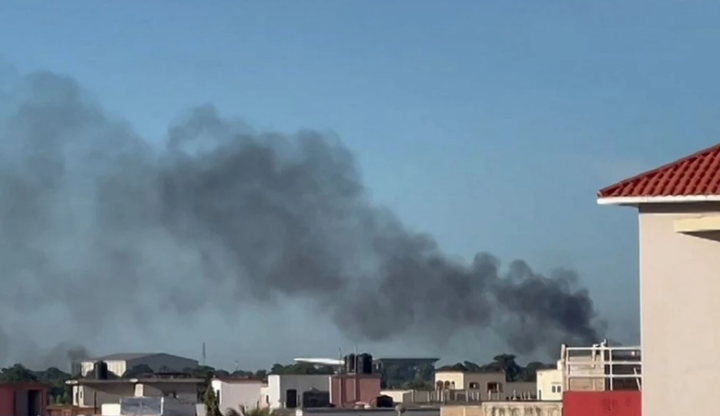Militants launched a coordinated attack on a military training camp near the airport in Mali’s capital, Bamako, on Tuesday, leading to explosions, smoke, and gunfire in the area. The attackers, linked to the al-Qaida-affiliated group Jama’at Nasr al-Islam wal Muslimin (JNIM), attempted to infiltrate the Faladie gendarme school and targeted both the camp and a nearby military base.
While the Malian military swiftly claimed to have regained control, a security official confirmed that there were casualties and significant material damage, though exact numbers were not provided. At least 15 suspects were arrested following the assault.
The attack prompted the temporary closure of Bamako’s airport, with flights suspended indefinitely due to the exchange of gunfire near the area. The U.S. Embassy also issued a security advisory to its staff, urging them to stay off the roads and remain indoors.
Mali, along with neighboring Burkina Faso and Niger, has been grappling with an insurgency by militant groups like JNIM and the Islamic State for over a decade. The country’s security situation has further shifted since recent military coups, with the expulsion of French forces and the reliance on Russian mercenaries for security assistance.
Since Colonel Assimi Goita seized power in Mali, the country has faced a significant escalation in jihadist attacks, particularly in central and northern regions. The frequency and scale of these assaults have increased, with the July ambush that killed around 50 Russian mercenaries being a notable example. These mercenaries, working alongside Mali’s army, were ambushed by al-Qaida-linked fighters while retreating near Tinzaouaten.
Though attacks in Bamako, Mali’s capital, have been rare, the recent militant assault on a military training camp signals a shift in tactics. According to Wassim Nasr, a senior research fellow at the Soufan Center, the scale of Tuesday’s attack illustrates JNIM’s growing capacity to target military facilities, showing a deliberate focus on high-impact strikes rather than indiscriminate violence against civilians. This shift highlights the increasing threat to state institutions amid ongoing instability.



